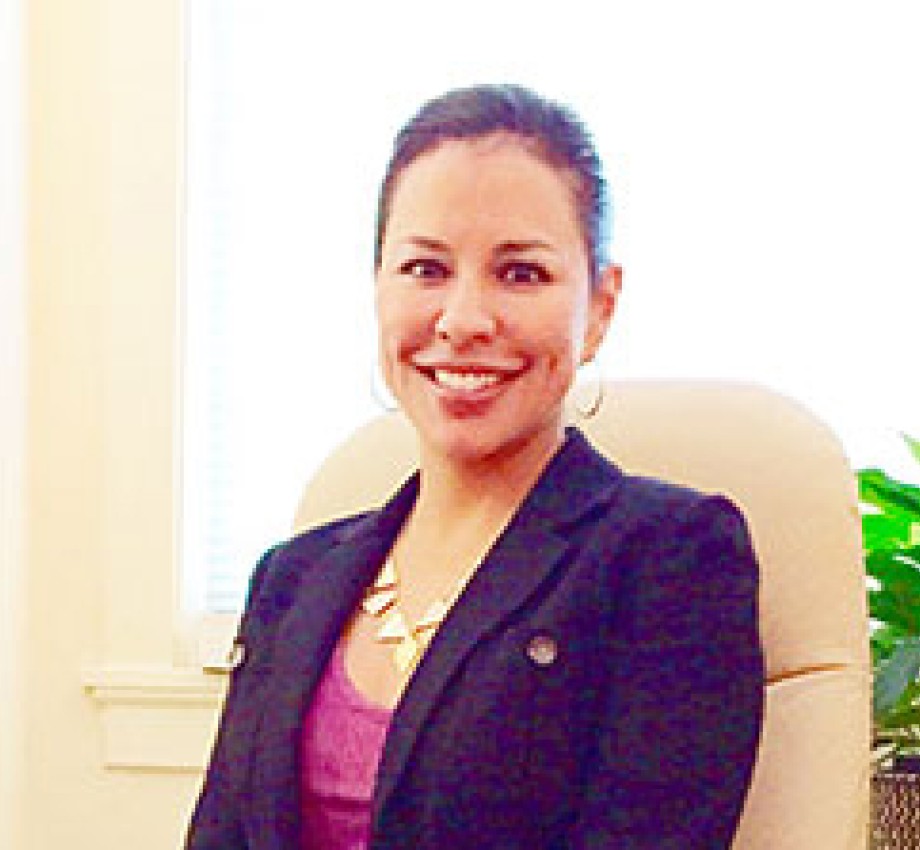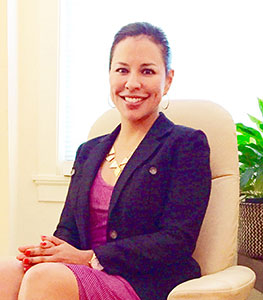

Practicing since 2006, Dr. Christina Villarreal offers her clients executive coaching (since 2013), psychotherapy and forensic assessments at her offices in San Francisco and Oakland. She has taught and supervised doctoral students in psychology at Argosy University and The Wright Institute, and has published widely in newsprint, magazines, television news, scientific journals and social media/blogs. As a UC Berkeley Extension instructor, Villarreal brings her extensive knowledge in evidence-based Cognitive Behavioral Therapy to the classroom.
Tell me a bit about your practice.
My coaching and psychotherapy clients are Bay Area adults who typically hire me to help them develop more effective organizational and leadership skills, sharpen their emotional intelligence at work and in their personal relationships, and learn how to apply custom mood-management strategies to reduce stress, depression and anxiety. Many of them reach out after relocating to the Bay Area or while adjusting to phase-of-life transitions within their career or relationships. These clients are immersed in the Bay Area's tech community, and are startup founders or high-achieving tech professionals.
I also specialize in cultural diversity and sexual health issues, helping people with immigrant parents to navigate cultural/familial expectations, interracial relationship support and those who are seeking to improve their sexual functioning.
My forensic-assessment clients are most commonly civil, criminal or immigration attorneys who need psychological assessments for their clients or to provide them with consultation or expert witness testimony in a range of legal settings.
Lastly, I offer my professional opinion to journalists and media producers aiming to increase awareness and understanding of current issues in mental health.
How do you address your clients' needs?
I use a problem-solving approach that is positive, individually tailored, strength-based and solution-oriented. My techniques are informed by Cognitive Behavioral Therapy principles. As a forensic-assessment provider, I aim to employ culturally sensitive assessment tools and offer an objective professional opinion based on more than 15 years of assessment training and experience.
How do you serve your tech clients in particular?
I enjoy working with this generation of individuals because we share the common goal of wanting to make a positive, impactful difference in our society, and we are inspired by innovative, creative and alternative ways of thinking.
How would you describe your methodology?
I collaborate with my clients using evidence-based techniques to help them discover new ways of problem solving. Part of what I love doing is helping people get "unstuck" so that they can fully utilize their potential.
I help people overcome obstacles and enlist strategic resources as part of a tailored plan of action. We take time to clean up some of the ineffective patterns that are in the way, which allows for new, positive developments. I help people build the courage they need to try new ways of thinking and doing. They use their sessions as an active place to reflect, plan goals, and experience steady, measurable progress. In partnership, we celebrate accomplishments, gain insights from the pitfalls that are a natural part of growth and strengthen new patterns so they can maintain their gains beyond our work together. It's an exciting journey that I love taking with people every step of the way!
You also take time out to teach at UC Berkeley Extension. What does this experience mean to you?
One of the things I've enjoyed most while teaching and supervising doctoral students in clinical psychology was the opportunity to mentor them along their career trajectory. UC Berkeley Extension's Post-Baccalaureate Program for Counseling and Psychology Professions is geared toward helping students gain essential educational components for graduate school. I felt with my breadth of experiences in a variety of mental health settings, I could be a great resource for students during their early professional development.
I like to help students make connections between the theoretical concepts I am teaching in the classroom to real-life clinical examples I've encountered. I also make a point to share details about how to successfully manage the demands of career development, including how to develop a private practice like my own.
I want students to leave my class feeling like they have gained a sense of mastery of the course topic and can effectively apply it in their future professional endeavors. I also hope that I have helped them clarify what practical steps will help them achieve their professional goals.